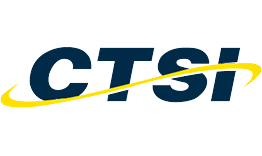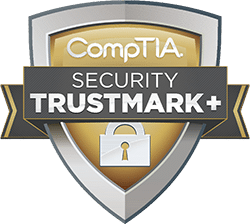Healthcare Compliance Trends in 2021
There’s nothing static about compliance in the healthcare sector. Cyber threats and regulatory requirements are always evolving, and organizations must be vigilant to keep electronic health records safe.
From HIPAA compliance to NIST 800-171, here’s what your organization can do to stay up to date with compliance requirements in 2021.
A look at recent healthcare compliance trends
The regulatory environment for the industry has tightened up over the past couple of years.
There are a few reasons for this.
Increased digital transactions and data sharing
The industry has been adopting digital technology for years, but this process has sped up recently with the pandemic.
- During the pandemic, telemedicine emerged as a safe and convenient alternative to in-person visits. A recent survey of US specialists revealed a considerable jump in telehealth appointments. The physicians surveyed said they used telemedicine technology 79 percent more than before the COVID outbreak.
- To help combat the opioid pandemic, more states are requiring electronic prescriptions for controlled substances. With an electronic record, it’s easier for organizations to track and manage prescriptions, which can reduce forged prescriptions and the reuse of written copies.
- More healthcare companies are using AI applications that use prescriptive and predictive algorithms to provide better treatment recommendations and diagnosis accuracy. Gartner predicts that 75 percent of healthcare delivery organizations will invest in AI to improve either operational performance or clinical outcomes by 2021.
While the digital shift makes healthcare more efficient and streamlines processes, more digital technology also presents greater complexity when it comes to HIPAA compliance.
This is because there are more applications, third-party technology services, and devices in use. Organizations have to be proactive about protecting personal health records at every point.
Healthcare organizations continue to be a significant cyber target
Another reason for tightening regulations and an expanded focus on compliance is the industry’s uptick in cyberattacks. Ransomware attacks are a huge threat – and they’re getting more challenging to defend.
From September to October of 2020, ransomware attacks on US hospitals rose by 71 percent. Hackers previously were using only two standard ransomware attacks: crypto and lock attacks. In 2020, they’ve been using a new type called DataKeeper.
To keep electronic records safe and maintain HIPAA compliance, your organization has to be ready for anything.
The federal government has raised the bar on cybersecurity
If your organization handles Controlled Unclassified Information (CUI), you’ll be familiar with CMMC and NIST 800-171. Under these regulations, all contractors and subcontractors have to comply with NIST 800-171 guidelines and, as of January 2018, undergo a third-party audit to receive CMMC certification.
There are different levels of CMMC certification. What cybersecurity practices and policies your organization needs to have in place depend on your contract’s specifics and the CUI your systems interact with.
The bottom line is, implementing standard cybersecurity practices isn’t enough.
Keeping your business compliant no matter what
Whether you require CMMC certification or not, you still need to maintain HIPAA compliance and stay on top of trends and regulatory changes as a healthcare organization. For most businesses, this is far more than any in-house IT team can handle.
From keeping clear, concise documentation for compliance audits to implementing proper safeguards to protect electronic health records, you’ll gain peace of mind when you partner with a technology company specializing in compliance solutions for the healthcare sector.
















